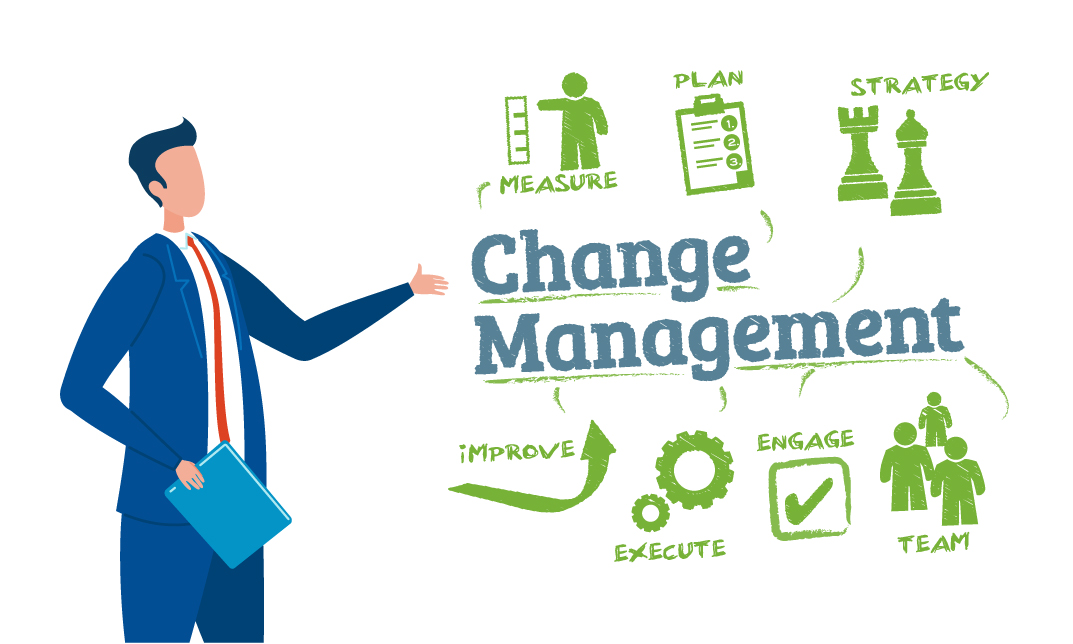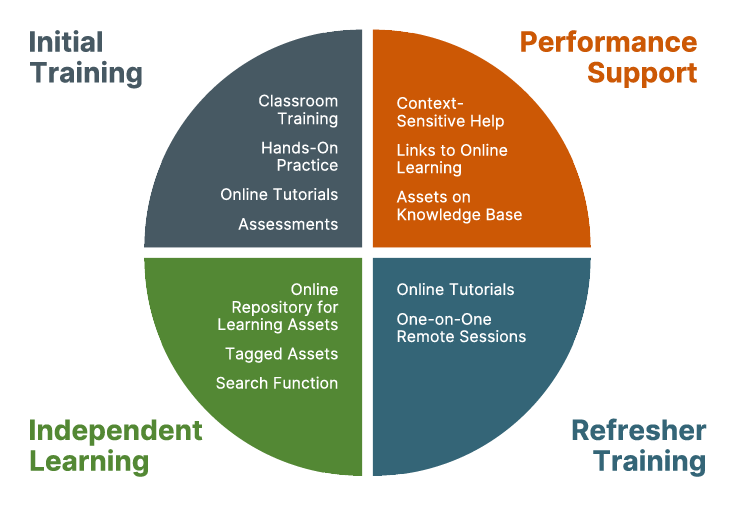


Change Management Training
The change management training curriculum is designed to provide participants with the skills and knowledge needed to effectively lead and manage change within their organizations. It covers topics such as change management principles, communication strategies, stakeholder engagement, and resistance management. The curriculum includes interactive workshops, case studies, and real-world examples to provide participants with practical tools and techniques for driving successful change initiatives.
Training Outline
- Introduction to Change Management: Understanding the fundamentals of change management, including its importance, benefits, and key principles.
- Change Management Models and Frameworks: Exploring popular change management models such as ADKAR, Kotter’s 8-Step Process, and Lewin’s Change Management Model, and understanding how to apply them in real-world scenarios.
- Change Management Planning: Learning how to develop comprehensive change management plans, including identifying stakeholders, assessing change readiness, and creating communication and training strategies.
- Change Communication and Stakeholder Engagement: Understanding the importance of effective communication during change initiatives and learning how to engage and manage stakeholders throughout the change process.
- Change Implementation and Support: Exploring strategies for implementing change smoothly, including managing resistance, providing support to employees, and monitoring progress.
- Change Evaluation and Continuous Improvement: Learning how to evaluate the success of change initiatives, identify areas for improvement, and implement continuous improvement strategies to ensure long-term success.
- Application of change management in different industries: Understanding how change management is being executed in different industries, and understanding how some change initiatives can be used across all industries, while others may be industry specific.
- Leading in change management: Identifying the skills and expertise needed to be able to lead change within organisations. Learning how to lead during the different phases of the change in a bid to increase change adoption and acceptance.
Outcomes:
-
- Increased Employee Engagement
- Better Change Implementation
- Reduced Resistance to Change
- Improved Change Management Skills
- Enhanced Change Management Capabilities
- Improved Organizational Performance
- Increased Adaptability
- Enhanced Communication and Collaboration
- Better Change Planning and Execution
- Improved Change Leadership



